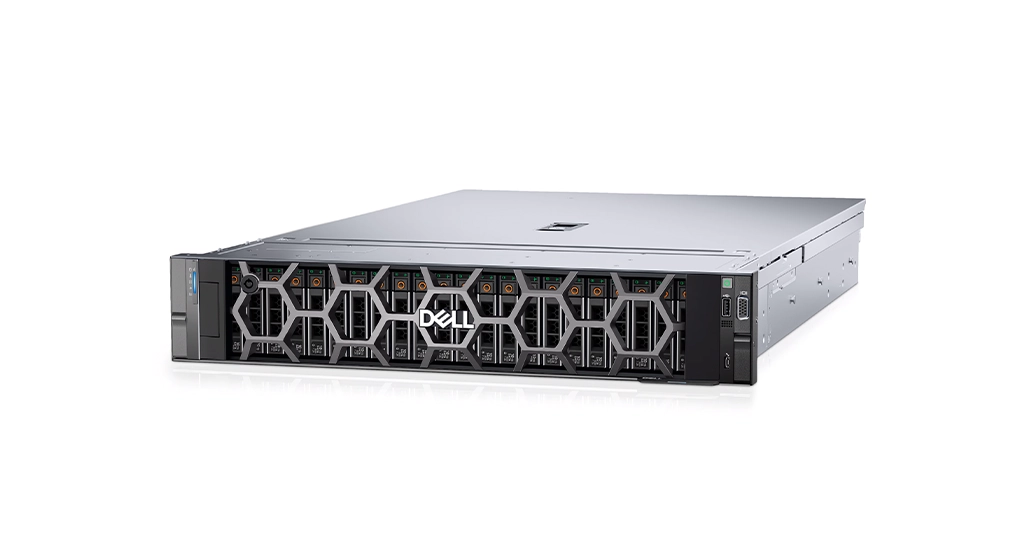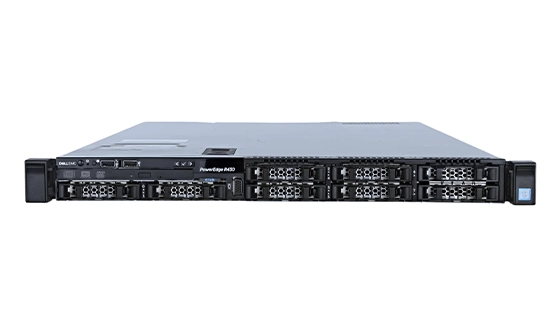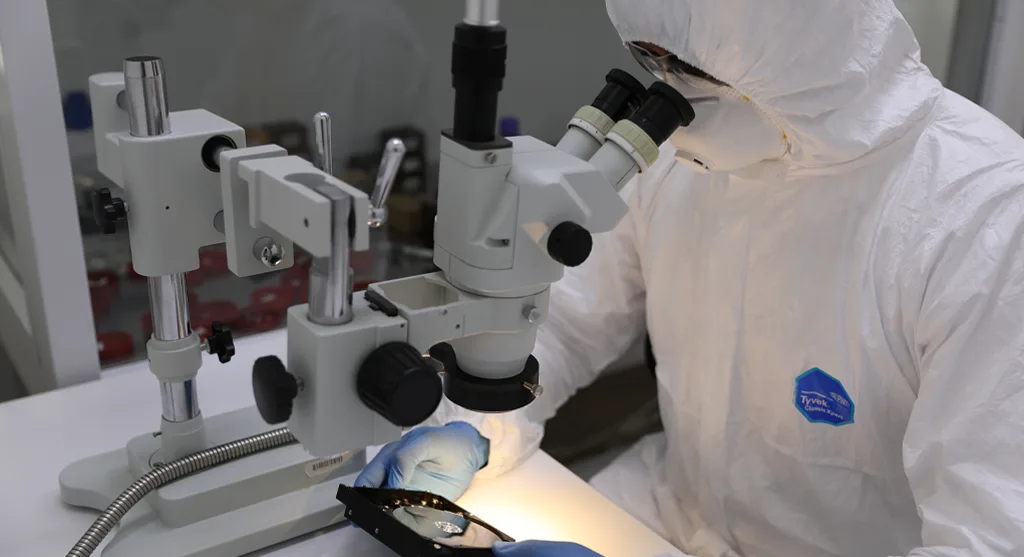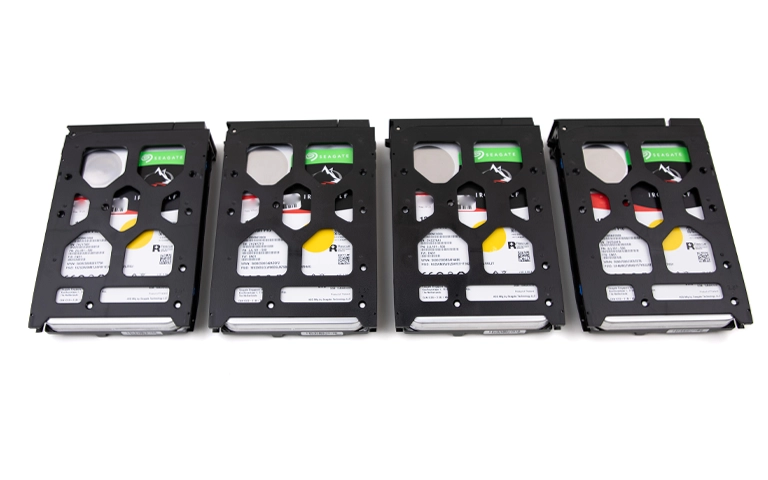A professional services firm recently suffered a severe data loss incident involving their Dell PowerEdge 440 server. The system was critical to daily operations, hosting company file shares and multiple Hyper-V virtual machines supporting internal workflows.
Designed for both performance and scalability, the server utilised a PERC H330 internal RAID controller and a storage array comprising six Seagate Barracuda 5TB drives configured in RAID 5. An SSD in Slot 0, operating independently from the array, contained the Windows Server operating system.
The failure occurred when the RAID 5 volume disappeared from the Windows environment without warning. With no external backup in place, the firm was at risk of extensive data loss that could have disrupted all core business functions.

Problem Overview: RAID Offline and Drives in Critical States
Initial diagnostics revealed several serious conditions within the Dell PowerEdge 440 RAID 5 array:
Drive 00:01:01 was flagged as Removed and no longer recognised as part of the array.
Drive 00:01:04 displayed a Foreign status, indicating loss of original RAID metadata.
Dell diagnostics confirmed hardware issues — Drive 1 showed a flashing green LED (signalling a physical fault), while Drive 4 remained steady-lit.
Fortunately, the client exercised caution and refrained from critical missteps such as importing the foreign configuration or forcing a rebuild. Either action could have irreversibly overwritten RAID metadata or written new parity to stale data, rendering recovery impossible.
Recognising the risks of handling a degraded RAID 5 configuration, the firm contacted RAID Recovery Services for professional assistance.
For further details on how to safely recover data from similar RAID 5 failures, visit our RAID 5 Data Recovery page.

What Was at Risk?
This RAID 5 volume contained far more than routine documents or spreadsheets — it hosted the foundation of the firm’s IT infrastructure, including:
Three Hyper-V virtual machines, running key services such as the accounting platform and internal web server
Critical operational data, including contracts, financial records, and internal reporting files
Shared office directories accessed across multiple departments
Although total storage usage was relatively low (estimated below 10%), the business impact was substantial. The data’s operational value was significant, and downtime had already begun disrupting daily activity across the organisation.
Our Recovery Process: Inspection, Imaging, and Reconstruction
When the drives arrived at our laboratory, our engineers began a non-invasive diagnostic procedure using sector-by-sector imaging tools and forensic-grade hardware to ensure complete data integrity during analysis.
Our cleanroom technicians disassembled and inspected each drive to evaluate its physical condition and potential for recovery.
Cleanroom Inspection Findings
Drive 1 and Drive 4, previously flagged as Removed and Foreign, were both physically damaged. Microscopic platter inspection revealed extensive surface scratches, rendering them beyond recovery.
A third drive, initially appearing stable, was identified as the last failure in the sequence. It likely contained the most recent parity and user data but had suffered a head crash — a common mechanical failure that restricts read access without necessarily damaging the platters.
Inside our ISO-certified cleanroom, engineers carried out a successful head assembly replacement using an exact-match donor drive. This delicate process required precise actuator alignment within microscopic tolerances and recalibration of the read/write system.
Once the replacement heads were fitted and stabilised, the entire drive was fully imaged, capturing the latest parity information and user data structure in its entirety.

Fast turnaround times for business-critical data
Reconstructing the RAID 5 Volume
With complete disk images obtained from the remaining healthy drives and the successfully recovered one, our engineers began the logical reconstruction of the Dell PowerEdge RAID 5 array.
Stripe size, parity rotation, and block order were reverse-engineered through detailed hex-level analysis.
The RAID was virtually rebuilt within a controlled software environment, eliminating any risk of interference from the original hardware controller.
Multiple configuration models were tested before identifying the correct array parameters, ensuring precise data block alignment.
Once validated, the recovered array was mounted in read-only mode, and full file system integrity checks were executed.
All three Hyper-V virtual machines were successfully identified, extracted, and verified for boot functionality and data consistency. Additionally, all Office files and database records were confirmed to be complete and fully accessible.
For further details on recovering virtual environments, explore our Hyper-V Data Recovery Services page.

Final Results: Full Recovery Within a Week
100% of client-requested data was successfully recovered, including all Hyper-V virtual machines and shared office files
The entire recovery process was completed within seven business days, significantly reducing operational downtime
Recovered data was securely delivered on encrypted external drives
The client reintegrated the restored virtual machines into their production environment without any data corruption or loss
This outcome was achieved because the client acted decisively — avoiding rebuild attempts, preserving the original hardware configuration, and engaging professional recovery specialists at the appropriate time.
Why Choose RAID Recovery Services?
No rebuild attempts, guaranteeing data integrity and maximising recovery success rates
Cleanroom head replacements and platter-level diagnostics to recover data from physically damaged drives
Virtual RAID reconstruction enables recovery even in cases of multiple simultaneous drive failures
Proven expertise with Dell PowerEdge servers and PERC RAID controllers, ensuring confidence in complex enterprise-level recoveries
To learn more about how we manage advanced failures on Dell systems, visit our Dell Server Recovery Services page.
Whether your RAID environment is affected by logical corruption, multiple drive faults, or mechanical failure, our specialists have the capabilities and experience to restore your data securely and efficiently.
Trust the experts with proven results
Frequently Asked Questions
What does “foreign” mean on a RAID drive?
A foreign status indicates that the drive’s metadata no longer matches the current RAID configuration held by the controller. Importing a foreign configuration without expert validation can lead to severe data corruption.
Can RAID 5 survive two drive failures?
No. RAID 5 can tolerate only a single drive failure. A second failure — even if partial or metadata-related — will make the array inaccessible and may result in complete data loss.
What is a head swap, and why is it required?
A head swap is a cleanroom operation in which the failed read/write heads inside a hard drive are replaced with functional ones from a matching donor unit. This process is essential when a mechanical fault prevents the drive from reading data correctly.
How do you virtually rebuild a RAID array?
We use specialised virtual reconstruction software to emulate the original RAID structure. This involves matching stripe size, parity sequence, and block order — all performed in a read-only environment to prevent any alteration of the original data.
How quickly can RAID data be recovered?
Typical turnaround is five to ten business days, depending on the complexity of the failure. Emergency recovery services are available, including 24-hour evaluation and priority restoration.